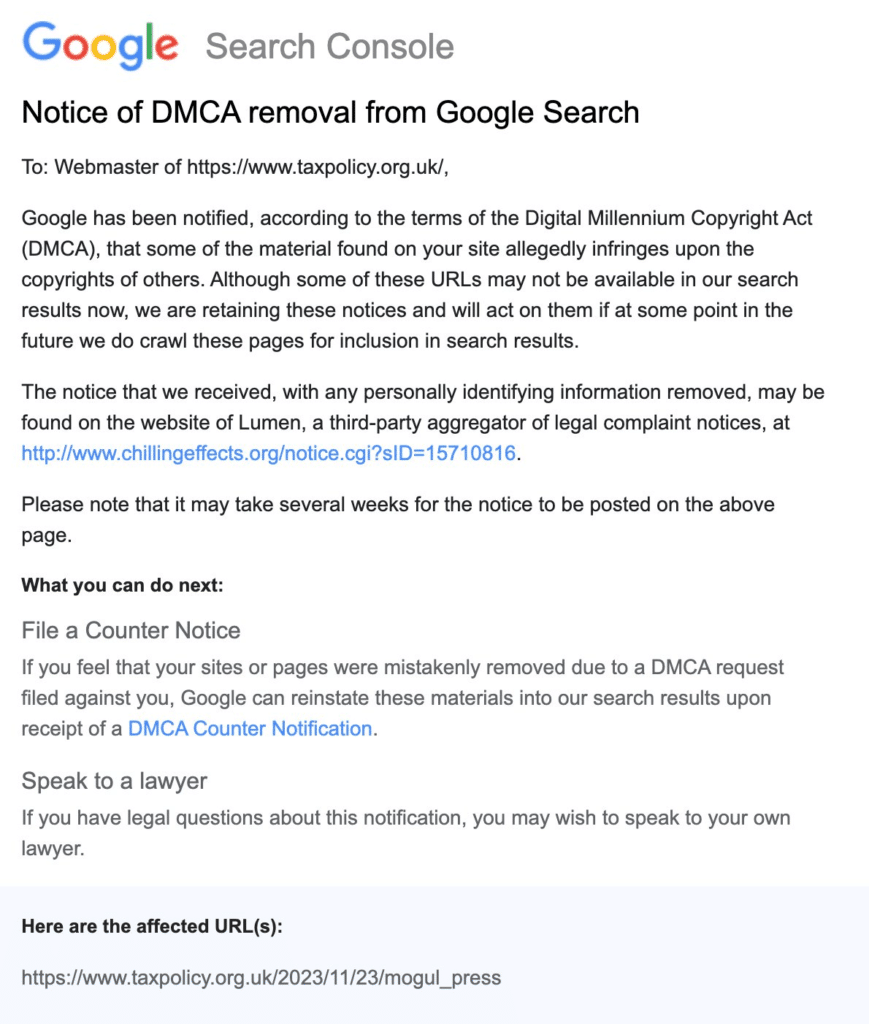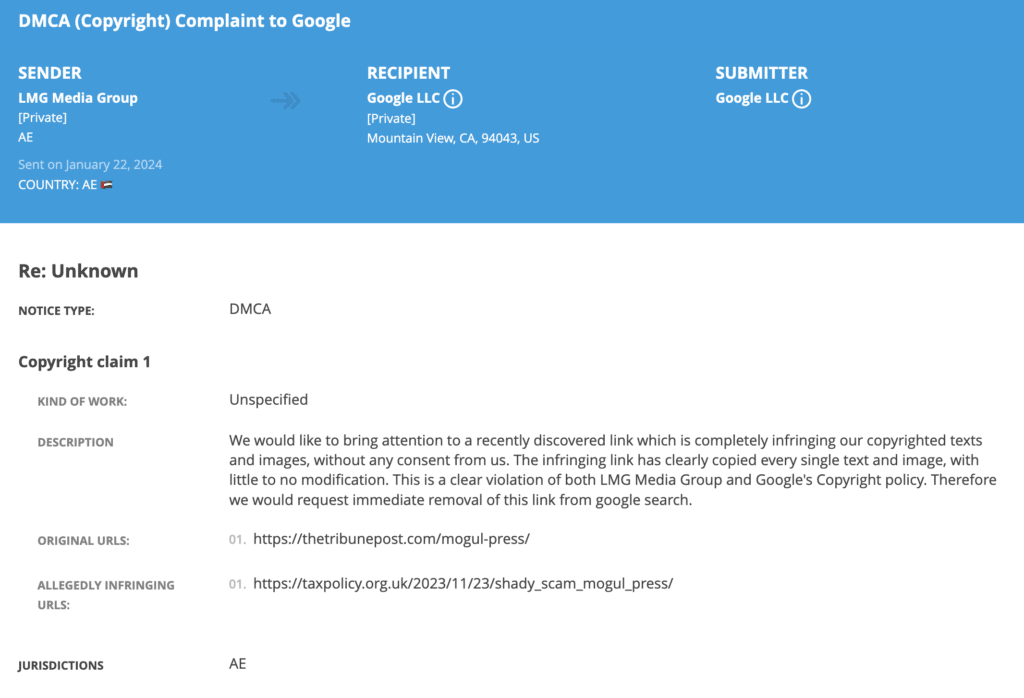I’ve written previously about a business called Mogul Press, which spams people on social media from fake profiles, often with stolen photos of real people. They claim to be a “PR agency” but their business appears to actually involve charging for paid placements in low quality media.
Mogul Press didn’t much like our article. At that point I thought they had several options:
- Change their business practices: stop spamming people, stop using fake profiles, and be honest about what their business actually is.
- Given they claim to be an “award-winning public relations and communications agency” they could communicate to the world why my article was inaccurate or unfair.
- Threaten legal proceedings – although given that my claims were factual, this would always be challenging.
What I didn’t appreciate was that they had a fourth option – fraud.
I received this from Google:

It’s a “takedown notice” under the US Digital Millennium Copyright Act. The idea is that a copyright owner can submit an online form to a service provider, e.g. Google complaining that an indexed page on the internet breaches its copyright. Google will then delist the page and notify its owner. If the owner disagrees there’s a copyright breach then they can file a “counter-notice“. The complainant then has a couple of weeks to begin an actual legal action for breach of copyright; if it doesn’t, the service provider restores access.
I assumed they’d complained about my use of images of their website. These are copyrighted, but I’m perfectly entitled to use them for purposes of comment/criticism under the US “fair use” doctrine. In theory, I could sue Mogul Press for filing a bad-faith takedown notice.
But I was wrong. We can now see copies of the actual complaints and they aren’t incorrect, or bad faith. They’re simply fraudulent:

The “tribunepost.com” link (archived version here) is just a direct copy of our article. Mogul Press created it (naturally breaching our copyright) and then filed a DMCA notice claiming that we’d copied them. This is, very obviously, just fraud.1I asked Mogul Press what they were up to, and they didn’t reply – so I think we can discard the possibility that someone else did this without telling Mogul Press
It seems reasonably clear we’d have a claim for damages against Mogul Press under the DMCA. Google has taken legal action against similar fraudulent takedown requests in the past. Criminal offences may also have been committed.
Given the likelihood Mogul Press and its CEO, Nabeel Ahmad, are just scammers with no easily-traceable assets, it’s probably not worth spending time suing them. I’ll probably hurt them more financially by publishing this article – and that would be an entirely fair outcome.
Image by Lexein.
-
1I asked Mogul Press what they were up to, and they didn’t reply – so I think we can discard the possibility that someone else did this without telling Mogul Press


One response to “Mogul Press – using fraud to silence criticism of their deceptive business practices”
“just scammers with no easily-traceable assets” ?? – but the CEO of Mogul Press says he’s a “global trailblazer” who “built a million dollar company at the age of 22” !!
https://nabeelahmad.com/press-media/
– Can’t you just sue them for the laughs?
Film it all as you go along – pretend your Esther Rantzen back in the day.